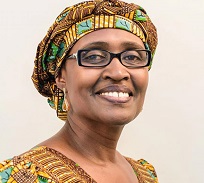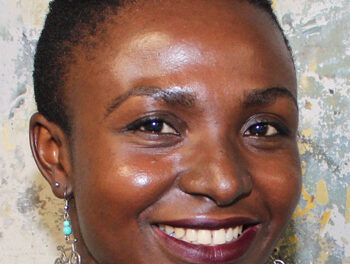
Harambee, we can beat COVID, beat HIV, and beat inequality

By Winnie Byanyima
UNAIDS Executive Director
It is so inspiring to be back in Namibia, to witness the progress made on HIV, and even more importantly – to discuss with government, UN, development partners, civil society organisations and communities how we can address together the challenges still to overcome.
I am so thankful to President Geingob, to the First Lady, and to all the agencies and communities who have hosted us.
Namibia is key to winning the global struggle to end AIDS as a public health threat by 2030 – in two vital ways.
Firstly, Namibia has shown what is possible, including by meeting key 2020 global HIV treatment targets ahead of schedule. Now, we are discussing together how we can build on that, including by speeding up progress on prevention of new infections and reaching all communities. Success in Namibia will inspire and inform success across Africa and beyond.
Secondly, Namibia’s global leadership is encouraging bold international action, both as co-chair of the UNAIDS board and as cofacilitator, with Australia, of the High Level Meeting on HIV and AIDS coming in June. The world’s promise for 2030 is to end new HIV infections, discrimination, and AIDS-related deaths. We are hopeful that Members States will embrace ambitious targets for the next five years, and are calling on them to fully resource and efficiently implement them. We know how to end the AIDS epidemic. With Namibia’s leadership, we are working to galvanize the global will and action.
It is such wonderful news that now 95% of people living with HIV in Namibia know their status, and that 90% of people diagnosed are on treatment, and that Namibia is on track to end new infections in infants. But leaders from government, UN agencies, development partners, civil society organisations and communities all reiterated to me some of the key challenges which remain.
As the new global AIDS strategy highlights, inequalities continue to fan the spread of HIV in many parts of the world. COVID-19 has brought these inequalities to the forefront and exposed the fragility of the gains we have made. Ending AIDS requires ending inequalities.
The face of HIV in Namibia, and across sub-Saharan Africa, is the face of an adolescent girl. The COVID crisis has exacerbated this, pushing millions more African girls out of school and increasing incidence of early pregnancy. That is why we are coming together in Education Plus, a high-level policy initiative, underpinned by a powerful rights-based campaign, for the policies and upscaled investments that will ensure school completion, through free quality secondary education for all girls and boys, and reinforce this with: violence-free environments, access to comprehensive sexuality education, the fulfilment of sexual and reproductive health and rights and access to services, and young women’s economic empowerment through school to work transitions. Together these will dramatically bring down new infections, empower girls, and strengthen economic development.
Crucially, as the world discusses the challenges of the difficult fiscal situation exacerbated by COVID-19, will be the recognition that investments in health, education and empowerment are not unaffordable expenditures, but vital investments for recovery and national development. The COVID crisis is not a reason to step back but a reason to step up. Together, we must find the money to leave no one behind. Aid, debt cancellation, new progressive domestic revenue sources, and tackling illicit financial flows and tax avoidance, will all be key.
None of this can be done by one UN agency, or one ministry, or one sector, working in a silo. As the President notes, it will only be possible harambee.
It has been forty years since the first AIDS cases were reported, and twenty years since the historic United Nations General Assembly Special Session on AIDS. World leaders have promised to end AIDS in the next ten years. If we are bold, if we work as one, we can.













































